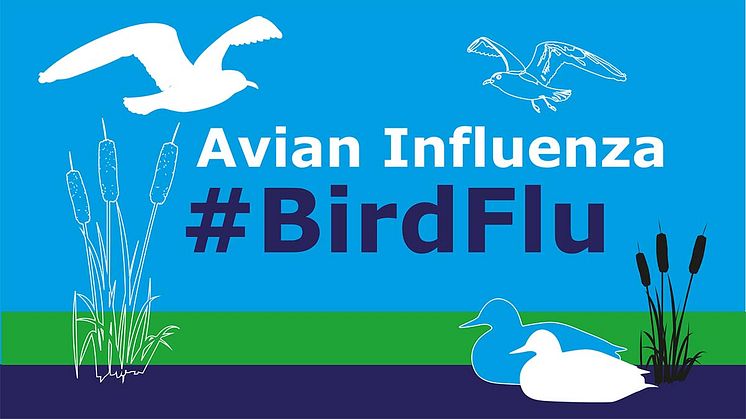
News -
Public urged not to pick up sick or dead birds
People are being urged not to pick up sick or dead birds. People who find dead swans, geese or ducks or other dead wild birds, such as gulls or birds of prey, should report them to the Defra helpline on 03459 33 55 77.
In the latter part of last year the Chief Veterinary Officers from England, Scotland and Wales declared an Avian Influenza Prevention Zone (AIPZ) across the whole of Great Britain to mitigate the risk of the disease spreading amongst poultry and captive birds. From 8.30pm on 21 November a new avian influenza prevention zone was also declared in parts of North Yorkshire in England.
The Department for the Environment, Food and Rural Affairs (Defra) and the Animal and Plant Health Agency (APHA) has verified one confirmed case of avian influenza A (H5N1) in a wild bird in Bury.
It is now a legal requirement for all bird keepers in Great Britain to follow strict biosecurity measures to help protect their flocks.
Keepers with more than 500 birds will need to restrict access for non-essential people on their sites, workers will need to change clothing and footwear before entering bird enclosures and site vehicles will need to be cleaned and disinfected regularly to limit the risk of the disease spreading.
Avian influenza circulates naturally in wild birds and when they migrate to the UK from mainland Europe over the winter, they can spread the disease to poultry and other captive birds.
Backyard owners with smaller numbers of poultry including chickens, ducks and geese must also take steps to limit the risk of the disease spreading to their animals. To enable to Bury Council to keep bird owners informed of updates and contact them easily in the event of an outbreak in the borough, all bird keepers should register their birds with the council.
Lesley Jones, Director of Public Health for Bury Council, said: "I want to reassure residents that the risk to public health from avian flu is very low.
"However, it is important that people do not pick up any sick or dead birds to avoid spreading the virus, which can affect humans in rare cases.
"If you do find any dead swans, geese or ducks or other dead wild birds while out and about, please report them to the Defra helpline on 03459 33 55 77.
"I would also urge bird keepers to be vigilant for any signs of disease and report any suspected cases to their nearest Animal and Plant Health Agency (APHA office).”
The Animal and Plant Health Agency (APHA) carries out year-round avian influenza surveillance of dead wild birds submitted via public reports and warden patrols. The APHA will collect some of these birds and test them to help us understand how the disease is distributed geographically and in different types of bird, not all birds will be collected.
Avian influenza is in no way connected to the COVID-19 pandemic which is caused by the SARS-CoV-2 virus which is not carried in poultry.
More information
How to spot avian influenza (bird flu), what to do if you suspect it, and measures to prevent it:
Advice to the public:

